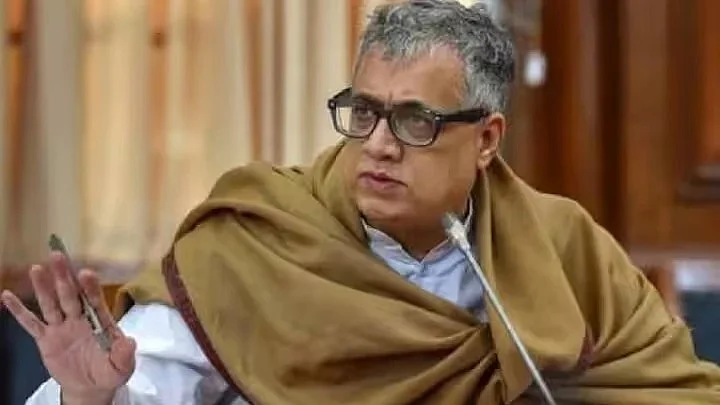Cess now 20 per cent of tax revenue, notes Derek O'Brien, as states rue shrinking share
The TMC leader also noted a significant proportion lies unused: “Rs 5.7 lakh crore of cess and surcharge has been lying unutilised since 2019”

Trinamool Congress (TMC) Rajya Sabha leader Derek O’Brien has sharply criticised the growing allocation to the stockpile of cess the central government is sitting on, describing it as “slitting the throat of federalism”. He noted that his situation arises at a time when numerous states have expressed alarm over the diminishing share of the divisible pool of tax revenues.
In a blogpost published on 5 September, Friday, O’Brien stated, “In all the hoopla about GST, the four-letter word which is slitting the throat of federalism is CESS [sic].”
He argued that funds collected through cess go entirely to the Union government, without any distribution to the states. “Funds collected as cess go 100 per cent to the Union government. Not a rupee is shared with the state governments,” he said.
Highlighting the growing reliance on cess, O’Brien pointed out that it accounted for 7 per cent of the Centre’s total tax revenues in 2012, whereas in 2025, it is projected to comprise around 20 per cent.
He also revealed that a significant sum remains unused: “Rs 5.7 lakh crore of cess and surcharge has been lying unutilised since 2019.”
Referring to concerns raised by several states, he added, “22 states, including many ruled by the BJP, had protested against the shrinking divisible pool. These states asked the 16th Finance Commission for a larger share of tax collections — currently 41 per cent, to be raised to 50 per cent.”
Citing Reserve Bank of India data, he explained that the divisible pool has contracted from 89 per cent of gross tax revenue in 2011 to 79 per cent in 2021. This decline occurred despite the 14th Finance Commission’s recommendation to increase tax devolution to states by 10 per cent.
Between 2015 and 2024, the amount of cess in operation has risen sharply. “Cess (in operation) has increased by 462 per cent (over Rs 2 lakh crore),” O’Brien said.
Cess is levied as an additional tax on top of existing taxes, and the proceeds may or may not be shared with state governments. The divisible pool refers to the portion of gross tax revenue shared between the Centre and the states, excluding surcharges and cess collected for specific purposes.
O’Brien also referenced former West Bengal finance minister Amit Mitra, saying that GST rationalisation is a positive step, provided it benefits the public. He noted that the anti-profiteering committee — which ensured the benefits of lower GST rates were passed on to consumers — has been discontinued.
“Second, there also remains the question of how states will be compensated. Eleven ministers in the GST Council had asked for compensation, their voices were muffled,” he said.
He further raised concerns about the projected revenue impact. “Third, the revenue secretary said in the press conference that revenue loss will be Rs 48,000 crore. But he didn’t take into account the supply chain. It will, easily, be over Rs 1 lakh crore,” O’Brien stated.
The TMC leader also recalled the recommendations made by a Parliamentary Select Committee on the GST Bill in 2015, of which he was a member. The committee had advised that GST should not exceed 18 per cent and that tax multiplicity should be avoided.
“Now, done. Better late than never,” he remarked.
The GST Council, in its meeting on 3 September, Wednesday, approved a two-tier rate structure of 5 per cent and 18 per cent, which is scheduled to take effect from 22 September.
Opposition-ruled states had previously expressed concerns regarding potential revenue losses resulting from the rate rationalisation and had called for a compensation framework. However, during the council meeting, all states reportedly agreed to reduce tax rates in the interest of easing the burden on the public.
With PTI inputs
Follow us on: Facebook, Twitter, Google News, Instagram
Join our official telegram channel (@nationalherald) and stay updated with the latest headlines
